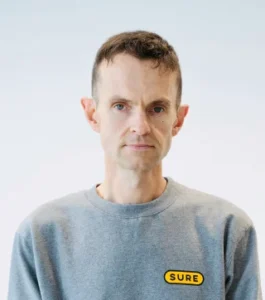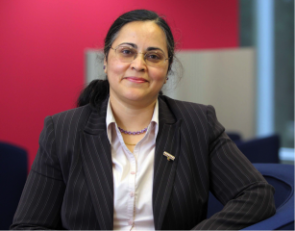
The conference took place on:
- Friday 11th April 2025, starting at 09:00 BST
- Saturday 12th April 2025, starting at 13:00 BST
The H890 ‘Research and Scholarship in Digital Education’ online module is part of the MA in Online Teaching programme run by the Institute of Educational Technology (IET) at the Open University UK. This online conference is presented using the Open University’s Online Rooms, powered by Adobe Connect.
Each H890 student contributed a short presentation to one of the conference sessions – the Conference Programme is shown below.

We are delighted that Professor Neil Selwyn of Monash University, Australia, delivered our opening keynote presentation on Friday 11th April, on the topic of “Ten things I’ve learnt about researching digital education”.
We were equally delighted that on the second day of our conference, we heard a keynote presentation from Professor Shailey Minocha, Emeritus Professor of Learning Technologies and Social Computing at The Open University, UK. The theme of this presentation was “Planning and conducting impactful scholarship“. Professor Minocha spoke about the impact of scholarship implying demonstrable benefits to learning and teaching that are directly attributable to a scholarship project. She said “In my keynote, I will discuss on why impact matters to the funders, for student outcome and experience, and for scholarly practice and career progression of educators. I will outline the key values and strategies that can help guide scholarship practice for possible impact. Finally, I will describe the role of Evaluative Thinking for impactful scholarship and the tools for developing evaluative thinking skills.”

Registration
As the conference has now taken place, registration is closed. Please make a note to check back in January 2026 to register for next year’s conference.
Conference Programme
Click on the presentation titles to read the abstracts for each of the student presentations. Comments or questions on their abstracts would be welcomed using the comments feature at the foot of each page.
| Start Time | End Time | Speaker | Presentation Title |
|---|---|---|---|
| 09:00 | 09:30 | Professor Neil Selwyn, Monash University, Australia, and University of Lund, Sweden | KEYNOTE: Ten things I’ve learnt about researching digital education |
| 09:30 | 09:45 | Kirsty Masterton | Phonetically decodable e-books – impact on early reading practices and progress. |
| 09:45 | 10:00 | Phillip Newton | The Human Argument: Finding a space for teachers voices in the design of learning platforms |
| 10:00 | 10:15 | BREAK | |
| 10:15 | 10:30 | Demelza Hayer | Breaking in: Early findings from an Open University Associate Lecturer’s action research scholarship project critiquing own breakout room practices |
| 10:30 | 10:45 | Billy Smith | How can A.I. patients effectively develop pharmacy students’ consultation skills? (Presentation Star Award Winner) |
| 10:45 | 11:00 | Amy Johnstone | Virtually There: Student experiences of remote and blended museum studies work placements |